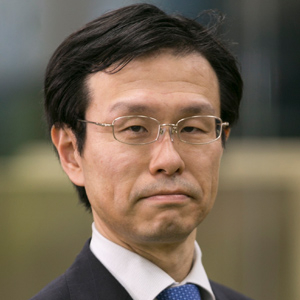
- Article
- Macroeconomics, Economic Policy
Expansionary Policies Could Widen Wealth Gaps, Inviting Populist Backlash
August 25, 2020
Senior Fellow Takero Doi warns that growing economic inequality, fueled by the Japanese government’s expansionary fiscal and monetary policies, could trigger a groundswell of support for an ill-advised wealth tax.
* * *
Governments and central banks around the world, Japan’s included, have responded to the economic shock of the COVID-19 pandemic with expansionary fiscal and monetary measures, injecting massive liquidity into the market. The question now is how far such policies should be taken, and how long they should be maintained.
In Japan, calls for ongoing expansionary measures have won widespread support among lower income groups. On the other hand, mainstream economists and leaders of big business have expressed reservations about the long-term consequences, cautioning against unbridled growth in deficit spending at a time when the national debt has already swollen to unprecedented levels. But the debt is not the only reason for concern.
Among the more extravagant proposals being floated these days are calls for another ¥100 trillion in new government bond issues, supported by a commitment from the Bank of Japan to purchase them, and a repeal of the consumption tax. But what effect would such policies ultimately have on the lower income earners they are supposed to help?
The Rich Get Richer
To be sure, lower income earners are likely to experience hardship without any stimulus payments or other government benefits. But such cash handouts do not add to their net worth, since they are quickly swallowed up by living expenses.
So, what has happened to all the money the government has injected into the economy in recent months? Generally speaking, it has flowed from struggling households and small business owners into the coffers of prosperous businesses and individuals with no urgent need for it. In this way the government’s largesse, supported by loose money, ends up exacerbating economic inequality instead of addressing the plight of those in the lower income strata.
This is the predictable result of expansionary fiscal and monetary policy, unless it triggers inflation. For some time now the Japanese government has pursued qualitative and quantitative easing in the expectation that it would boost the expected inflation rate, leading to real wage increases. But that has yet to happen.
The Interest-Rate Conundrum
To be sure, inflation might yet take hold, delivering the promised benefits of real wage increases for low income earners. But this raises another problem. Most of those who support ongoing fiscal and monetary expansion do so on the premise that the Japanese government can continue to issue bonds at near-zero yields. But if inflation gains momentum, that will become impossible.
This is the logical contradiction inherent in the pro-expansion position. To maintain an expansionary fiscal and monetary policy, the government must be able to issue bonds at near-zero interest, and it cannot do so if its policies trigger inflation. Yet without inflation, workers’ wages will not rise, and all that extra money injected into the economy will simply add to economic inequality.
In any case, inflation only helps the lower income earners if wages rise faster than prices; if they lag behind, then real wages decline. Past experience teaches us that this is frequently the case, at least over the short term.
Dangers of Economic Populism
If the government continues to pursue expansionary fiscal and monetary policies, lower income earners will eventually realize that those policies are contributing to economic inequality, particularly as regards the distribution of assets. Once this realization dawns, people may begin changing their tune: Instead of calling for repeal of the consumption tax, they could begin agitating for a new wealth tax targeting the affluent. After all, if an expansionary policy supported by government debt only widens the wealth gap, then why not tax the wealthy to help cover those budget outlays, thereby narrowing the gap?
A wealth tax, however, is likely to be impractical and detrimental. First, keeping tabs on each individual’s financial assets is an administrative nightmare in this age of globalization and advanced financial technology, as other governments have already discovered. Second, most experts regard asset taxes (other than property taxes) as a counterproductive drag on economic growth.
Wealth is invested in securities like stocks and bonds, which businesses rely on for funding. Taxing financial assets will thus limit business investment, negatively impacting corporate profits and economic productivity in general and ultimately depressing tax revenues. For these reasons, most industrially developed countries have all but given up on the taxation of non-property assets.
Despite these drawbacks, a wealth tax is appealing to people at the lower end of the income scale. Few in Japan seem to be clamoring for it at the moment, but this may just be the calm before the storm. If the forces of populism gain a foothold in Japanese politics, the idea could easily gain political traction. And once that happens, there is no guarantee it will not become policy.
To avoid such a scenario, we need to exercise moderation when it comes to fiscal and monetary expansion, lest measures taken to relieve the pain of the crisis have the unintended consequence of contributing to economic inequality, potentially triggering a dangerous backlash.
Translated from “Kakucho-teki zaisei tsuzukeba shisan kazei no osore,” Nikkei Veritas, July 26, 2020. (Courtesy of Nikkei Inc.)

